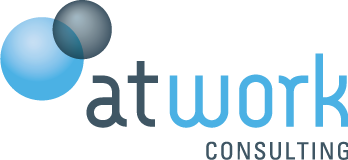
“OMG, OMG, OMG!!!!!” Yep, that was the reaction recently when we got an offer of a CEO position.
I use the term ‘we’ here, although my involvement was very much in the background.
In reality this was about the success, in a competitive job application process, of a focused and committed coaching client.
The triple “OMG…” was a direct quote from my client’s partner, as they sat back and celebrated on the evening of the day the offer came in.
It’s my client’s first CEO appointment, and involves moving into a demanding role. This result is pleasing for me as a coach, and clearly far more pleasing for client and partner. For the coach, it’s great to support people in achieving goals, transforming their lives, building a better future…
Over years of coaching, it’s probably been the career-coaching clients who’ve made the largest leaps most quickly. Getting a great new job can transform your life straight away. And coaching in this field is similar but different to, say, leadership coaching, or remedial coaching.
Leadership coaching is (usually) about a development process. It includes some content as well as internal work, and typically has some or all of the desired impact. It ultimately improves the success of organisations as well as the experience of individuals at work, since when a leader improves, everyone around them benefits. Remedial coaching – turning around performance issues etc – can be effective, even if sometimes a tough slog for all concerned. When successful it also changes lives, and is another cause for celebration – and often relief!
When Career Coaching works – bring out the champers!
But career work is often about very immediate change and big results, especially when it’s around an application for a specific role. When it converts, bring out the champers!
The first big difference is that the coachee has often self-selected to take on coaching, rather than being sponsored by their organisation (more often the case with leadership or turnaround coaching). Secondly, they’re often seeking an immediate outcome. So they’re more motivated right from the start (whereas sometimes building motivation can be the early work in a coaching program). Why are they more motivated? One, they’re putting up the big bucks for it; and two, they’ve chosen it directly, sought me out as a coach, and are starting with some clear goals, or even just one driving goal.
Keys to success
I’ve noticed several elements that could be consistent keys to success in this process of chasing and winning new roles.
1. Have a plan
Get clear on the direction you are heading in. Typically you’re either going for one particular role, or for a type of role (for example, a first management appointment). If it’s a particular role, the case is clear. Do everything humanly possible to get that job!
But when it’s a more general career shift or upgrade, you’ll take some extra steps – scoping roles, preparing a generic CV ready for customising, exploring, getting creative about possible futures…
In deciding on roles, people with a narrow career trajectory find the options pretty obvious– just keep stepping up the ladder! For others, with a broader skill base and more options, the ladders often intersect, and there is more emphasis on choice at this stage. Narrow it down by identifying the key elements of your long-term future and therefore your logical next steps.
2. Do your research.
This talented individual wanted to move into a specific role for which we guessed his industry experience was lower than that of a typical candidate. So we worked hard and quickly at it … learn everything you can about the industry, the employer, and the challenges for both.
Get clear on how you are in fact the best candidate for the role. There has never, ever been a perfect candidate who hit all of the selection criteria. Which of your major strengths will mean you are the person they need in this role? Get to understand the selection process, the panel, and the background to the vacancy. Who was in the role previously, what went well and what didn’t? Is major change on the agenda for the role, or is it a case of steadying the ship after a period of disruption? What are the drivers for customer satisfaction and performance for the business, and how can you leverage the skills of the team and resources of the organisation to drive success?
Again, if your goal is more about positioning yourself for an as yet unknown next step, do similar, but more broadly!
3. Be prepared to take on feedback
As already noted above, there is no perfect candidate for any role, and that includes you and me! A great career coach will have prior experience in recruiting and selecting people in the types of roles that you are interested in. They will be able to role-play interviews, and take the part of a supportive but critical ally.
My successful candidates seem to have had the ability to take ego and resistance out of the equation – while learning, trying out new things, adapting and growing quickly.
4. Be good-looking!
No, this is not a joke, heaps of research shows that appearance matters. And no, we are not recommending surgery here! Remembering “grant me the serenity to accept the things I cannot change, the courage to change the things I can, and the wisdom to know the difference” – there are things we can all change that increase our chances of success.
Dress suitably, carry yourself well, smile, and greet people with confidence. Remember this during the interview, while keeping a comfortable and natural presence. Maintain an open posture. Use gesture in a suitable way to bring life to your responses. Engage people, share eye contact around the room. If possible, remember the names of people on the panel and use them – and don’t overuse them!
If it seems important, get some prior guidance from a specialist for a style makeover. Remember that ‘appearance’ extends to your style of responding to questions. Be broad enough, be specific enough, and be aware of any tendency to either undersell, oversell or waffle – and have strategies to correct yourself as you catch yourself doing any of these. Or preferably, just before!
And as anyone who saw the recent series of the Bachelorette in Australia will know, being an ‘international model’ without emotional intelligence seems to get people booted out quite quickly, so looks are not everything!!
5. Prepare, prepare – for the interviews
Be optimistic and positive. No matter how good a person you are, it’s not up to you to point out your flaws and weaknesses – leave that to the selection panel. Talk yourself up, especially if you’re not inclined to do so. Extroverts are often naturally more gifted at this than introverts, so if you’re an introvert, work even harder at this. Practice, in front of a mirror or with a coach. Rehearse some, or a lot, of what you want to say.
Like a politician, make sure you sell your key benefits, no matter what questions are asked (unlike many politicians, don’t avoid questions, but make sure you weave in your key points somehow … and don’t just recite mantras, that comes across as shallow or rigid).
Your research comes into play here. Imagine what questions could be asked to throw light on each candidate’s suitability against the selection criteria. Work through some possible responses so when you get there you’re in some sort of a comfort zone.
If you want to be really prepared, include being prepared to respond to the unexpected while staying in your comfort zone! There are some great ways to rehearse for this that some coaches can again help you with.
Remember that for senior positions in particular there is likely to be a follow-up less formal interview. This will be about getting to know you, and could include meeting the broader team. Things the panel might be on the lookout for are:
- culture fit / knows the industry.
- can we work together / are we comfortable?
- is the candidate equally good in informal situations?
- any clangers evident in this environment that the candidate kept under wraps in the formal interview.
Of course, some psych profiling is likely to be part of the process, along with referee checking. Make sure your referees know that you’re applying, why you’re applying, and that you’re a great fit.
6. Know what you’ll do when you move from the offer to the job
Not just the champagne, after that!! This is a key to future-pacing yourself into the role. Imagine you’re in the chair, in the office, at the board table, working with stakeholders. Imagine this richly, with visuals, sounds, and feelings. You can do this now, if you’re considering a career upgrade you want to make or a particular job you’re going for. Give it a shot and see how it feels to have that job of your dreams, and discover what it’s going to take for you to do it superbly.
And then, when it all comes together and you get the job, open a champers, or whatever works for you, and take a moment to breathe it all in.
